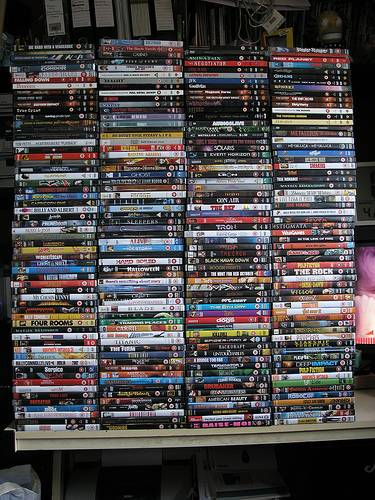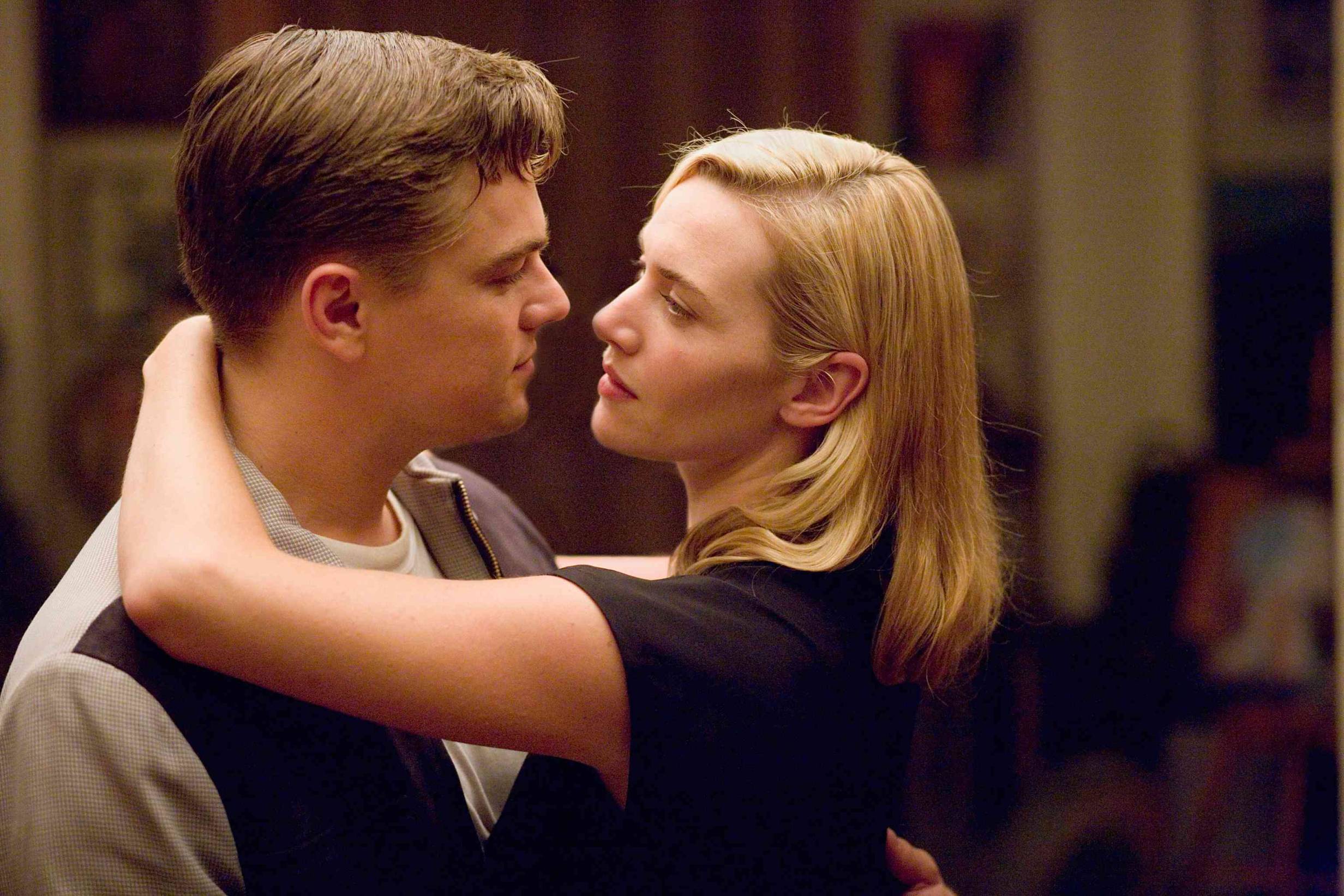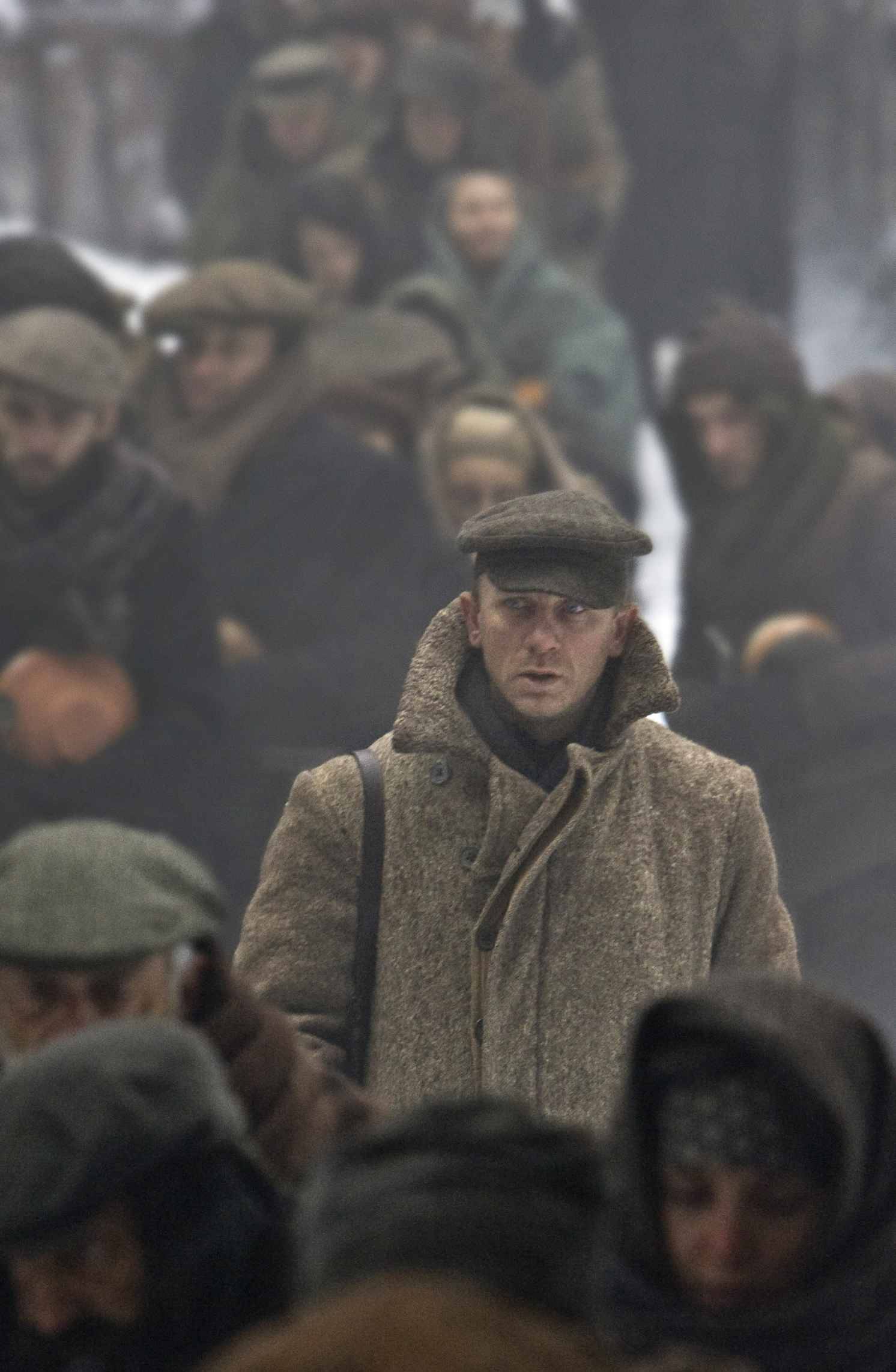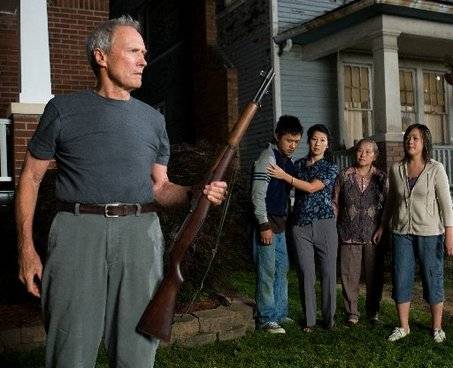A couple years ago a cinephile friend of mine decided that he was going to figure out how many films he had seen in his lifetime. Enlisting the help of the owner of a certain local video store, my friend went through the store’s rather exhaustive catalog on an Excel Spreadsheet, marking off each film he remembered seeing. When he was finished, the tally was well over 3,000.
 Of course, the video store didn’t have every movie ever made, so every once in a while around this time those of us who knew the cinephile in question would get an email saying something along the lines of, “Does anyone remember a movie where animated dinosaurs invade New York City?” (I don’t think he ever asked this particular question, but I have before. The answer came out on DVD recently.)
Of course, the video store didn’t have every movie ever made, so every once in a while around this time those of us who knew the cinephile in question would get an email saying something along the lines of, “Does anyone remember a movie where animated dinosaurs invade New York City?” (I don’t think he ever asked this particular question, but I have before. The answer came out on DVD recently.)
For no particular reason at all, I recently decided to make my own list of all the films I’ve ever seen, or most of them, anyway. I started with the same checklist, and have been adding films that I remember or have watched afterward. Right now I’m right around 1,800, a far cry from my friend’s total, but not too shabby, I suppose. It’s a fun project for film nerds, as we can relive the films we’ve seen and laugh at what a truly high percentage of them are absolute dreck.
If any patient people out there are interested in figuring out every movie they’ve ever seen ever, feel free to email me and I’ll send along the spreadsheet (there are 35,000 titles on it, so I really do mean patient people). But now, on to two more movies I can add to my list, neither of which, thankfully, are absolute dreck.
New Releases From the Box
Revolutionary Road
Advertised as the triumphant return of everyone’s favorite 90s couple, Kate and Leo, Revolutionary Road continues director Sam Mendes’s terrific streak of beautifully shot, heavy-handed, one-note dramas. Sometimes, as in American Beauty, comedy and clever cinematic slights-of-hand manage to initially hide the fact that he’s telling you the same thing over and over again for two hours, but not here. We get it, Sam, life in the suburbs is banal and soul-destroying. That doesn’t mean your movie has to be.

Maybe I’m being too harsh. Revolutionary Road features some good performances and even a couple clever observations about the hypocrisy of 1950s suburban middle-class culture-how it could make even the people for whom it was tailored (professional, white, heterosexual, patriarchal) feel oppressed. But do we need the following exchange between Leonardo DiCaprio’s character and the genius schizophrenic son of his neighbors? Leo’s character, Frank Wheeler, mentions that he and his wife just want to get away from the “hopeless emptiness” of it all, to which the genius schizophrenic replies,
Hopeless emptiness. Now you’ve said it. Plenty of people are onto the emptiness, but it takes real guts to see the hopelessness.
Duh. I mean, duh. The film lazily employs this “insane sage” stereotype in order to tell us what the film is telling us anyway. If you’re paying attention to the movie at all, you don’t need this character to come out and say everything for you, which is his only function. This is the movie, and perhaps Sam Mendes’s entire career, in a nutshell. Though Revolutionary Road was still far better than certain other Oscar contenders (cough Benjamin Button cough).
Defiance
Another film lacking any semblance of subtlety, Defiance is nevertheless a welcome addition to the myriad World War II/Holocaust films released in the last year. In most of these films, and Holocaust films in general, the Jews are represented as passive victims (e.g., The Boy in the Striped Pajamas) or as largely physically absent specters of Germany’s great collective crime and guilt (Valkyrie, The Reader). Here, the Jewish protagonists don’t serve as mere narrative functions in the stories of the gentile(s) around whom the plot centers, but are strong and active characters who don’t take genocide sitting down. This alone is admirable, and it is nice to see that at least once in a year full of Oscar-baiting Holocaust films, Hollywood is admitting that this is the Jews’ story. 
There is much to criticize about Defiance. My own personal pet peeve, the speak-English-with-a-phony-accent approach to English-language films set in other countries, is present. This inevitably leads to a few slippery moments, especially for Daniel Craig, who tries admirable to shake his British inflections for Slavic ones and often fails. But, as in Valkyrie, the use of language is justifiable: the Jewish characters speak accented English when talking to each other, but switch to Russian when talking to gentiles and Red soldiers. This leads me to assume that, in this film, English = Yiddish, understandably accented by their Belarusian upbringing.
Moreover, the film is a tad long and not especially compelling on the dramatic and even the action fronts or especially fine-tuned in its writing-we might have understood how Tuvia Bielski’s (Daniel Craig) mission was like Moses’s without characters telling us every five minutes. It’s a grand and somewhat hollow Hollywood melodrama, but it’s a welcome portrayal of some of the European Jews who resisted Hitler’s Germany, one that runs counter to some Jewish stereotypes that persist even to this day. Like any other people in such a situation, there were people who fought the fate imposed on them by Germany, and this decent war film is an important step forward in how the Holocaust is imagined in the popular consciousness.
Next Week on From the Box
 Clint Eastwood stars as a curmudgeony old racist in Gran Torino, his final ride into the sunset as an actor (or so he says). Also, the appropriately timed but dreadful looking The International is out, starring Clive Owen as a toxic asset the bank must terminate (or something). I’ll wade through these new releases and gleefully add them to my list of films seen, next week.
Clint Eastwood stars as a curmudgeony old racist in Gran Torino, his final ride into the sunset as an actor (or so he says). Also, the appropriately timed but dreadful looking The International is out, starring Clive Owen as a toxic asset the bank must terminate (or something). I’ll wade through these new releases and gleefully add them to my list of films seen, next week.








